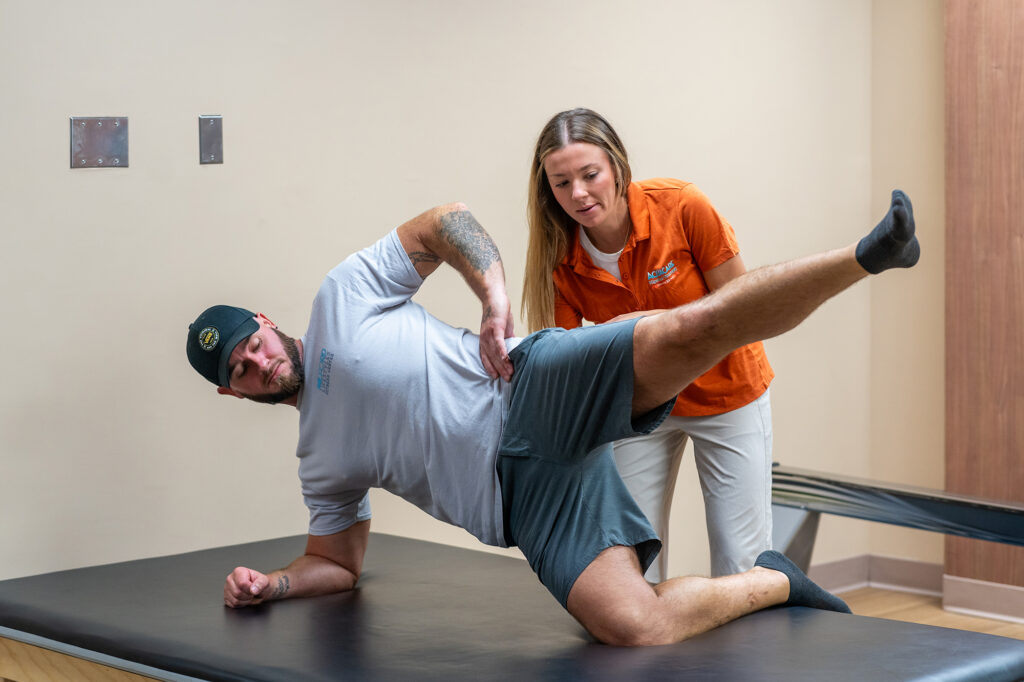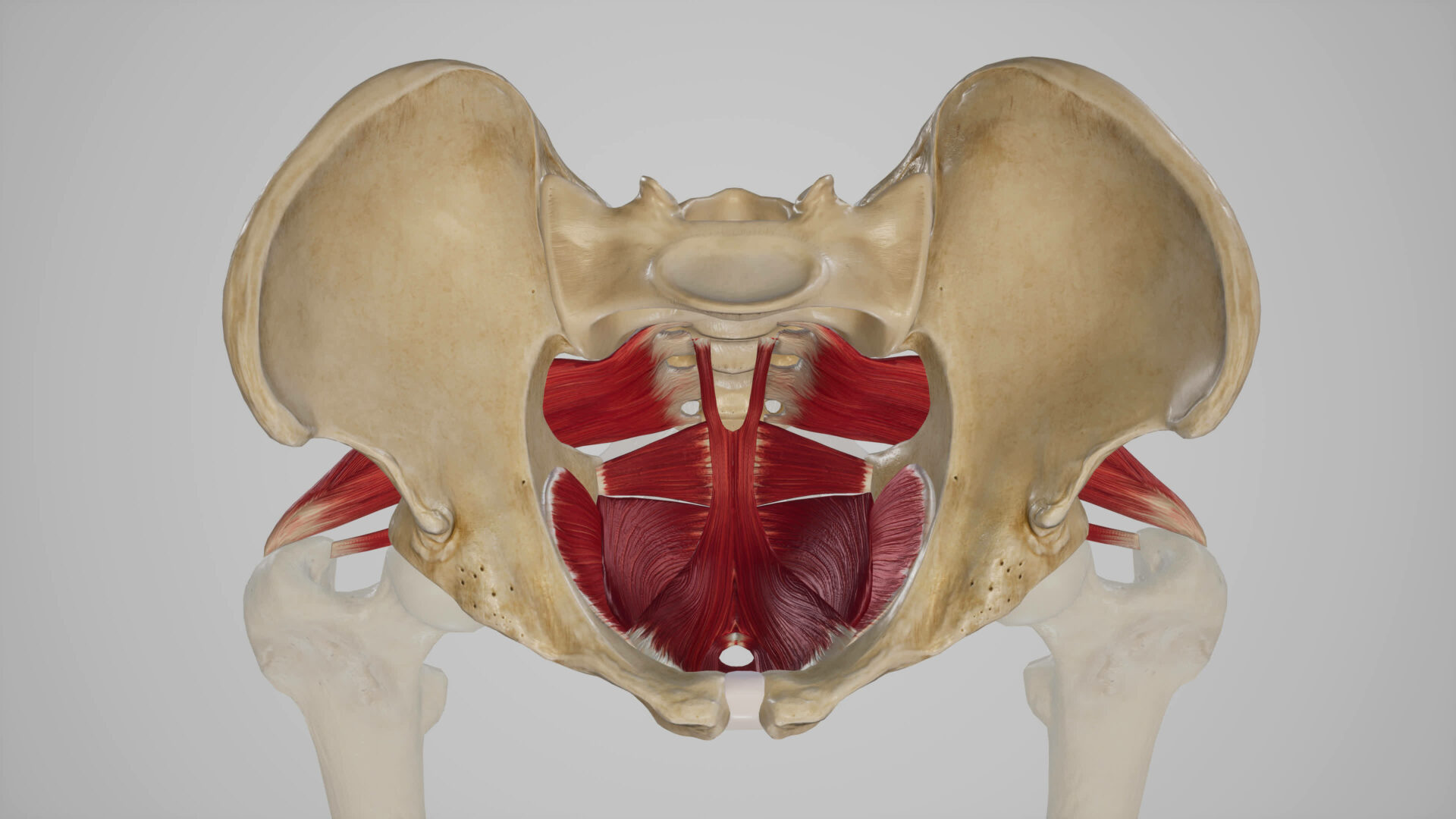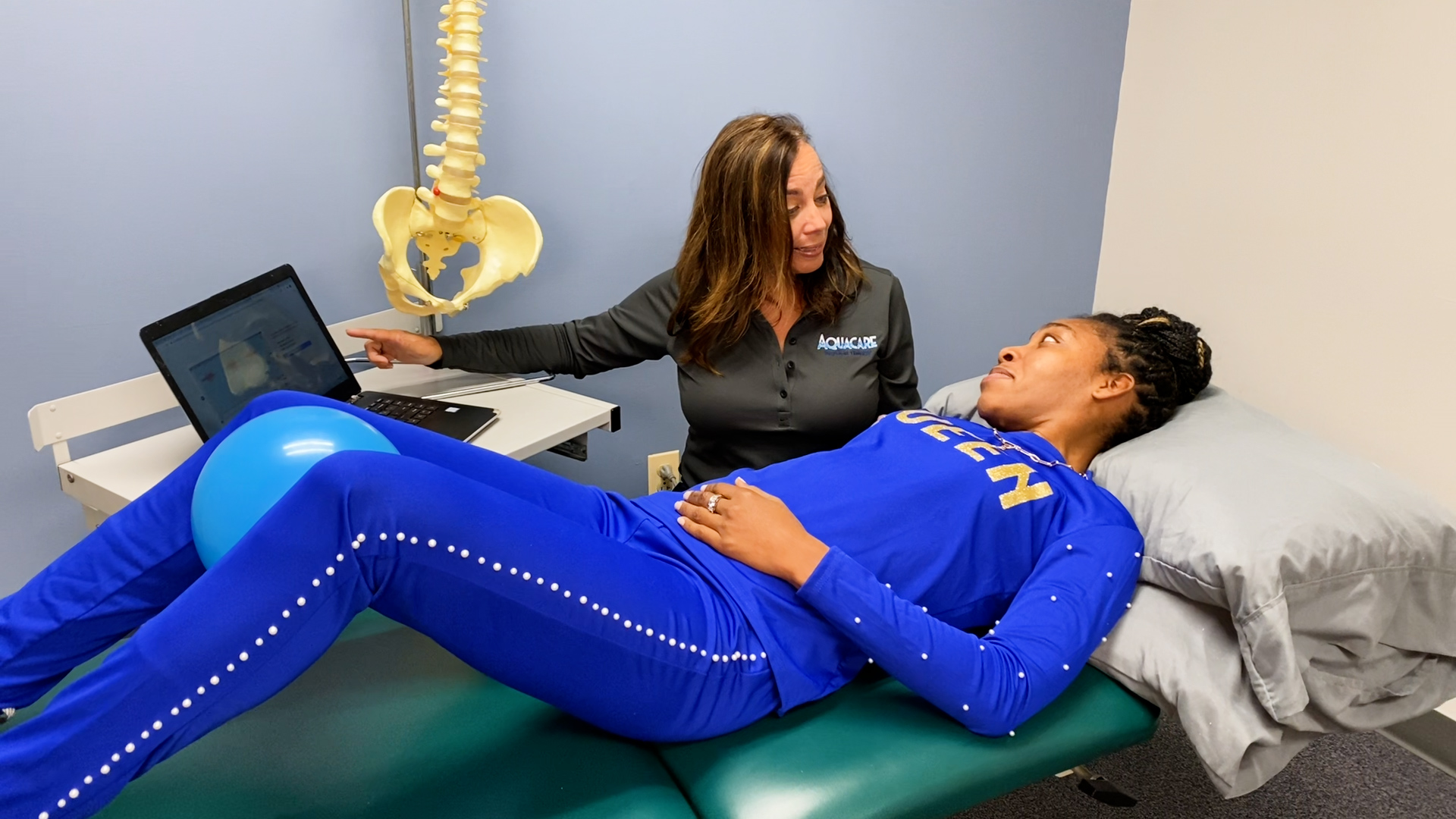What Is Pelvic Floor Therapy?
Pelvic floor physical therapy is a specialty form of therapy for all genders. This therapy addressed dysfunction/pain throughout the pelvic/abdomen and the surrounding area: muscles, joints, nerves, organs, connective tissue, etc. Pelvic floor physical therapy focuses on the strengthening/relaxation and increasing the support of the pelvic floor musculature, which enhances the function of the pelvic floor organs such as the bladder, uterus, prostate, and rectum. Our pelvic floor therapists can assist all individuals, regardless of agenda in eliminating such issues as urinary/fecal incontinence, pelvic pain, urinary frequency/urgency, and pelvic organ prolapse in women.




